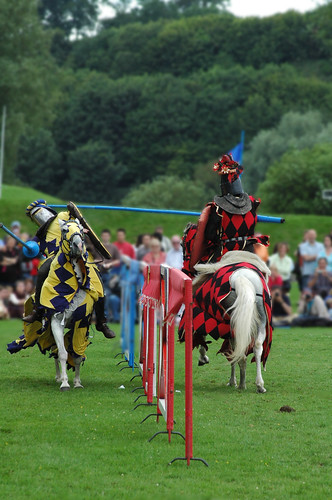The term laissez faire was first used in relation to economics by the French Phyiocrats Quesnay and Turgot in the eighteenth century, when they used the motto "laissez faire, laissez allez" to describe the principles they advocated.
This is said to have come from the cry used in medieval tournaments to give the signal for combat; the equivalent in English is "a fair field and no favours".
The Physiocrats believed in freedom of opinion, freedom of the individual and freedom of exchange, and the last of these freedoms, they argued, could only be achieved in the absence of government intervention.
Physiocrats, however, also pointed out the need to abolish all taxes except a tax on the value of land; this is implicit in the concept of freedom of exchange. It is unfortunate that this aspect of laissez faire has been almost totally ignored by both its advocates and its attackers. The tax on the value of land was the "impôt unique" or single tax. Without it, laissez faire is one-legged and cannot work. But, as Chesterton said of Christianity, laissez faire hasn't failed - it has never been tried.
I got involved in a discussion with a Youtuber called “Philosophy all along”. This was in connection with criticism of Trump’s policy of deporting illegal migrants, which he argued would be bad for the economy as it would reduce demand. This implies that there is a need to import people to sustain demand. There is no obvious reason why a population should not be able to consume everything that the same population produces. If it can not, then something else is going on. It is a basic principle that wages are the least that workers will accept to do a job. Wages are a share of the value added by workers through their wages. The remainder is distributed as economic rent, after government has taken its cut in taxes. Monopoly profit is a temporary surplus that after a delay gets absorbed into economic rent. Land values in Silicon Valley are an example of this; it's like a gold rush. The miners get little out of it. Rent and tax syphon purchasing power away from those who produce the g...

Kommentarer